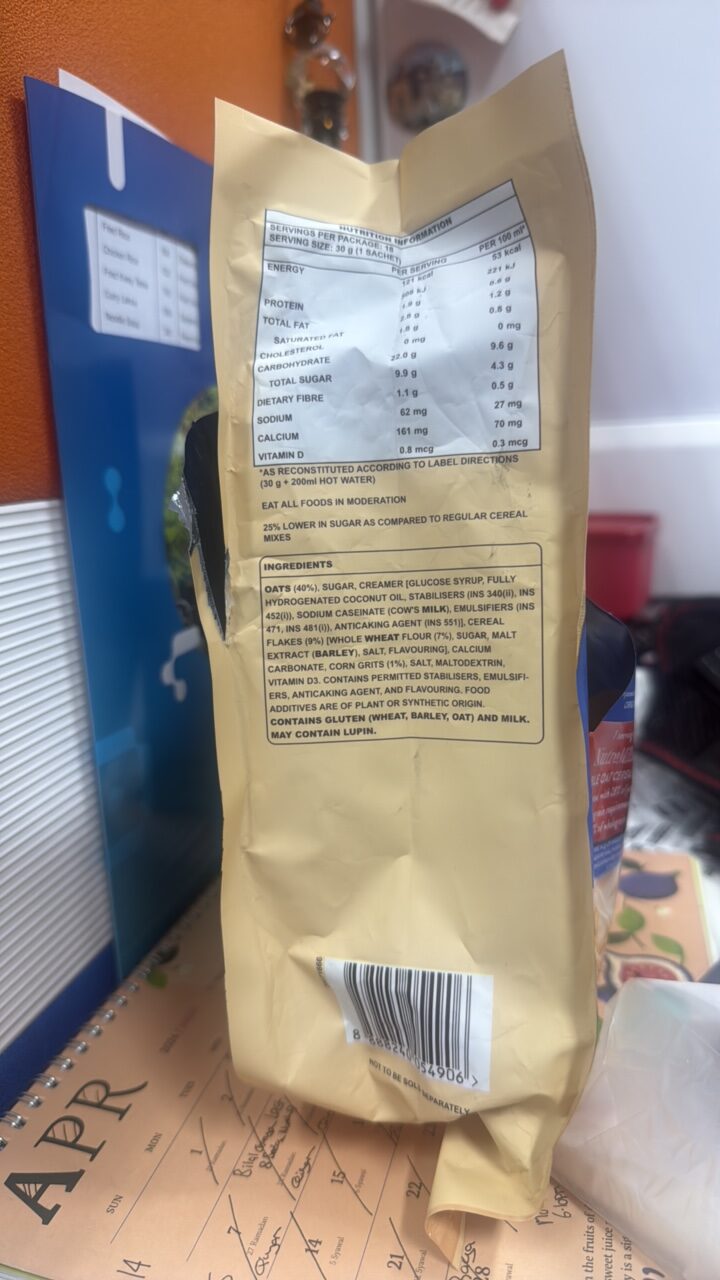
Barcode: 8888240054906
unknown
DOUBTFUL
📝 Reason: The product contains several ingredients with doubtful Halal status due to unspecified origins or lack of Halal certification, particularly dairy-derived ingredients and additives. Islamic dietary laws require clear Halal certification for animal-derived ingredients and additives to ensure compliance. Quran 5:3 prohibits consuming animals not slaughtered in the name of Allah, and scholars emphasize the importance of Halal certification for doubtful ingredients.
📄 Certificates: None
Ingredients:
Details
Exploring the Halal Status of the Product ‘unknown’
The product ‘unknown’ raises several questions regarding its Halal status. With the increasing awareness and demand for Halal products, understanding the compliance of ingredients is essential for consumers. In this post, we will review the Halal status of this product’s ingredients, focusing on the reasons behind its ‘Doubtful’ classification.
Understanding Halal Status
Halal, which means permissible in Arabic, refers to what is allowed according to Islamic law. Consequently, for food products to be considered Halal, all components must be free from any elements that are prohibited (haram). This is particularly crucial for ingredients derived from animals or those that may contain additives from haram origins.
Ingredient Breakdown
Let’s look closely at the ingredients of the product ‘unknown’ and analyze each one for its Halal status:
- Oats: Generally considered Halal as it is a plant-based ingredient.
- Sugar: Also plant-based and regarded as Halal.
- Creamer: This ingredient raises doubts due to its potential dairy origin, without clear Halal certification.
- Glucose Syrup: Typically derived from plants, it is considered Halal.
- Fully Hydrogenated Coconut Oil: A plant-based ingredient that is Halal.
- Stabilisers: Their origin is unspecified, leading to a doubtful status.
- Sodium Caseinate: Derived from milk, doubted without Halal certification.
- Cow’s Milk: Similar to sodium caseinate, its status is doubtful without Halal confirmation.
- Emulsifiers: Doubtful status as the origin is not specified.
- Anticaking Agent: Unspecified origin leads to its doubtful status.
- Cereal Flakes: A plant-based ingredient that is Halal.
- Whole Wheat Flour: Also a Halal compliant ingredient.
- Malt Extract: Generally considered Halal, derived from barley.
- Barley: A plant-based ingredient, thus Halal.
- Salt: As a mineral, it is Halal.
- Flavoring: Doubtful due to unspecified origin.
- Calcium Carbonate: Mineral-based and Halal compliant.
- Corn Grits: A plant-based ingredient, Halal in nature.
- Maltodextrin: Typically derived from plants, generally Halal.
- Vitamin D3: Its status is doubtful, as it may have animal origins without Halal confirmation.
- Contains Permitted Stabilisers: Doubtful due to unspecified origins.
- Food Additives: Generally considered Halal if derived from plant or synthetic origins.
Halal Certification Importance
Islamic dietary laws emphasize the importance of clear Halal certification, especially for ingredients of animal origin or those derived from animal products. Quran 5:3 directly prohibits the consumption of animals that are not slaughtered in the name of Allah. For those consumers dedicated to a Halal lifestyle, knowing the certification status of dairy-derived ingredients is essential.
The product ‘unknown’ lacks a Halal certification, which raises significant concerns regarding its consumption for practicing Muslims. Ingredients such as cow’s milk, dairy-based emulsifiers, and Vitamin D3 could potentially violate Halal laws if derived from non-Halal sources.
Final Thoughts
In conclusion, the product ‘unknown’ currently holds a ‘Doubtful’ Halal status due to the presence of several ingredients lacking clear Halal certification. It is advisable for consumers to investigate further or consult with relevant authorities before making a decision based on their dietary restrictions. Always strive for transparency in food sourcing to ensure compliance with Islamic laws and values.

